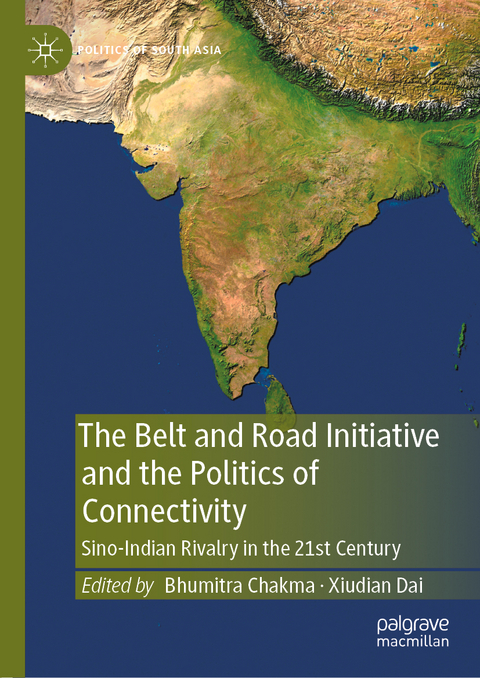
The Belt and Road Initiative and the Politics of Connectivity
Palgrave Macmillan (Verlag)
978-981-19-2863-5 (ISBN)
The Indian government has opposed the BRI since its inception noting that the ‘BRI violates India’s sovereignty and territorial integrity’ because one of the flagship BRI projects - the China-Pakistan Economic Corridor (CPEC) - runs through (Pakistan-controlled) Kashmir which India claims to be its own territory. It has consistently maintained that China’s ‘connectivity initiatives must be based on universally recognized international norms, good governance, rule of law, openness, transparency and equality, and must be pursued in a manner that respects sovereignty and territorial integrity’ of other states.
Beyond those stated reservations, New Delhi is concerned about the BRI infrastructure and connectivity projects in the smaller South Asian countries and the Indian Ocean littoral states. India has traditionally viewed South Asia and the IOR as its backyard over which it has historically maintained a position of influence. It is apprehensive that the BRI projects will enhance Beijing’s stature and undermine India’s influence in the region.
In eleven chapters including Introduction and Conclusion, this book explores the dimensions of the rivalry and analyses the causes, dynamics and implications of an accelerated Sino-Indian competition.
Dr Chakma is Senior Lecturer in the School of Politics and International Studies and Director of the South Asia Project, at the University of Hull. Dr Dai is Former Senior Lecturer in the School of Politics and International Studies at the University of Hull.
Chapter 1: Introduction.- Part 1: The BRI and the Politics of Connectivity and Infrastructure Building in Asia.- Chapter 2: Connectivity, Statecraft and Asian Acts of Rebalancing.- Chapter 3: The BRI and China’s Soft Power Strategy: Implications of the Digital Silk Road for South Asia.- Chapter 4: Cross-border Infrastructure Development in South Asia: Chinese and Indian Approaches, Rivalries, and Potential for Cooperation.- Part 2: The BRI and India.- Chapter5: India’s Reconstruction of China Policy.- Chapter 6: The Sino-Indian Rivalry in South Asia: The BRI and the New Cold Wars.- Part 3: The BRI and Sino-Indian Rivalry in South Asia and the Indian Ocean.- Chapter 7: China-Pakistan Economic Corridor: Implications for Sino-Indian Rivalry.- Chapter 8: The BRI and Sino-Indian Rivalry in Bangladesh.- Chapter 9: The India-China Geo-Economic Contest for Influence in Nepal, Sri Lanka and Maldives.- Chapter 10: India’s bid to Counter China in the Indian Ocean.
| Erscheinungsdatum | 07.09.2022 |
|---|---|
| Reihe/Serie | Politics of South Asia |
| Zusatzinfo | 2 Illustrations, black and white; XV, 276 p. 2 illus. |
| Sprache | englisch |
| Maße | 148 x 210 mm |
| Themenwelt | Sozialwissenschaften ► Politik / Verwaltung ► Europäische / Internationale Politik |
| Sozialwissenschaften ► Politik / Verwaltung ► Vergleichende Politikwissenschaften | |
| Wirtschaft ► Volkswirtschaftslehre | |
| ISBN-10 | 981-19-2863-0 / 9811928630 |
| ISBN-13 | 978-981-19-2863-5 / 9789811928635 |
| Zustand | Neuware |
| Haben Sie eine Frage zum Produkt? |
aus dem Bereich


